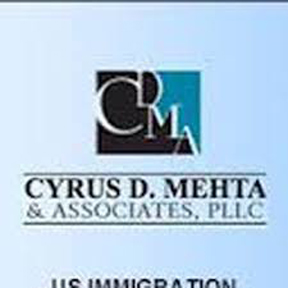Under 8 CFR 214.1(a) (3) (i), any foreign national who applies for admission to the U.S. must present a valid passport and valid nonimmigrant visa unless either or both documents have been waived. The foreign national’s passport must be valid for a minimum of six months from the expiration date of the contemplated period of stay.
While the regulation requires the presentation of a passport with such validity dates, there is nothing mandating the DHS to grant the I-94 till the expiration date of the passport. Some countries have agreements with the U.S.
whereby their passports are recognized as valid for return to the country concerned for a period of six months beyond the expiration date specified in the passport.
The effect of these agreements is to extend the period of validity of the passport for six months beyond the expiration date appearing on the face of the document. The issue is discussed at 9 FAM 41.104 N2. The list of countries that extend passport validity for an additional six months after expiration is at 9 FAM 41.104 Exhibit I.
Mark presented CBP with a passport valid for at least six months but not valid for the full H-1B validity period indicated on the Form I-797A, Approval Notice. As a national of Bermuda, Mark’s passport ought to have been considered valid until August 15, 2014, six months beyond the expiration date listed in his passport.
CBP issued Mark an I-94 with the same expiration date as the expiration date listed in his passport because, although the regulations do not mandate this, DHS appears to interpret “contemplated period of stay” in the regulation to correspond to the duration of the admission on the I-94. It appears that DHS does not want to grant a period of admission extending beyond the point that is six months prior to the actual expiration of the passport to line up with the regulatory requirement that the actual expiration date of the passport be six months past the expiration of the contemplated period of stay. Mark is realizing his problem now.
What can Mark do?
Had Mark taken immediate note of his I-94 expiration date upon his entry in August 2012, Mark could have first sought to obtain an extension of his passport as soon as possible. Then, Mark or his attorney could have contacted the local CBP Deferred Inspection Site in Chicago where Mark lives or at Mark’s actual port of entry at Newark Airport to request that the I-94 expiration date be corrected to correspond with the end date of the I-94 issued by USCIS on Form I-797.
This may or may not have been successful as it appears to depend on the particular CBP Deferred Inspection Site.
For instance, some CBP sites take the position that they can only correct this I-94 within 30 days of admission.
Other CBP sites will not correct this I-94. And other CBP sites take the position that this I-94 does not even need to be corrected as I-94 on the Form I-797 governs.
If CBP refused to correct the I-94, Mark could have taken a quick trip outside the U.S. prior to February 15, 2013.
If he re-entered the U.S. on a valid H-1B visa and he presented his Form I-797, H-1B Approval Notice valid until March 10, 2014 and his newly extended passport, CBP would have issued him an I-94 valid until March 10, 2014.
If Mark was unable to travel, his employer could also have filed an H-1B petition for extension with the USCIS taking the position that Mark’s H-1B status was set to expire on February 15, 2013. But none of these things happened. Mark has now remained in the U.S. for more than 180 days beyond the expiration of his I-94.
As Mark’s attorney correctly advised him, it is too risky to travel now. If he travels, Mark will have to apply for a new H-1B visa at a U.S. Consulate abroad and there is the possibility that the Department of State could deny Mark’s visa application and find him inadmissible into the U.S. for 10 years.
The only course of action now is for Mark’s employer to file an H-1B petition for extension of Mark’s H-1B status in the U.S. Mark’s employer can argue that Mark was properly maintaining H-1B status in the U.S. despite the expiration of the I-94 issued to him when he last entered the U.S. because the I-94 issued to him on the Form I-797, H-1B Approval Notice remains valid.
On the strength of that same I-94, it can be argued that Mark’s employer could continue to employ him. As mentioned above, some CBP offices take the position that the I-94 issued with the Form I-797, Approval Notice governs, that despite the issuance of an I-94 with an expiration date of February 15, 2013, Mark could remain in the U.S. beyond February 15, 2013 and until the 2014 expiration date of his H-1B status as granted by USCIS and as indicated on the I-94 issued by USCIS.
There has been no official guidance to indicate that CBP has officially taken this position. H-1B extensions filed with USCIS on this basis, however, have been successful.
When filing the H-1B petition, Mark’s employer can also request that although the petition is being timely filed because Mark’s H-1B status will not expire until March 2014, should the USCIS take the position that Mark is not maintaining valid H-1B status, that USCIS forgive the unintentional delay in filing of the petition under 8 C.F.R. 214.1(c)(4).
This regulation allows for an extension of stay for a beneficiary who has been unable to maintain his or her previously accorded status where it is demonstrated at the time of filing that (i) The delay was due to extraordinary circumstances beyond the control of the applicant or petitioner, and the Service finds the delay commensurate with the circumstances; (ii) The alien has not otherwise violated his or her nonimmigrant status; (iii) The alien remains a bona fide nonimmigrant; and (iv) The alien is not the subject of . . . removal proceedings under section 240 of the Act.
An H-1B extension filed on Mark’s behalf prior to March 10, 2014 will hopefully be approved presenting these arguments. However, there really is no substitute for the peace of mind that comes with ensuring that one never remains in the U.S. beyond the expiration date on the I-94. Foreign nationals need to remain vigilant when entering the U.S. making sure that they check their I-94 card (if issued one) or printout their I-94 from the CBP website.
As attorneys, our best practice is encouraging our clients to always update us on their travel dates and with copies of their I-94 upon re-entry into the U.S.
Concluded
(The article is for informational purposes only and should not be relied upon as a substitute for legal advice.)
Cora-Ann V. Pestaina







